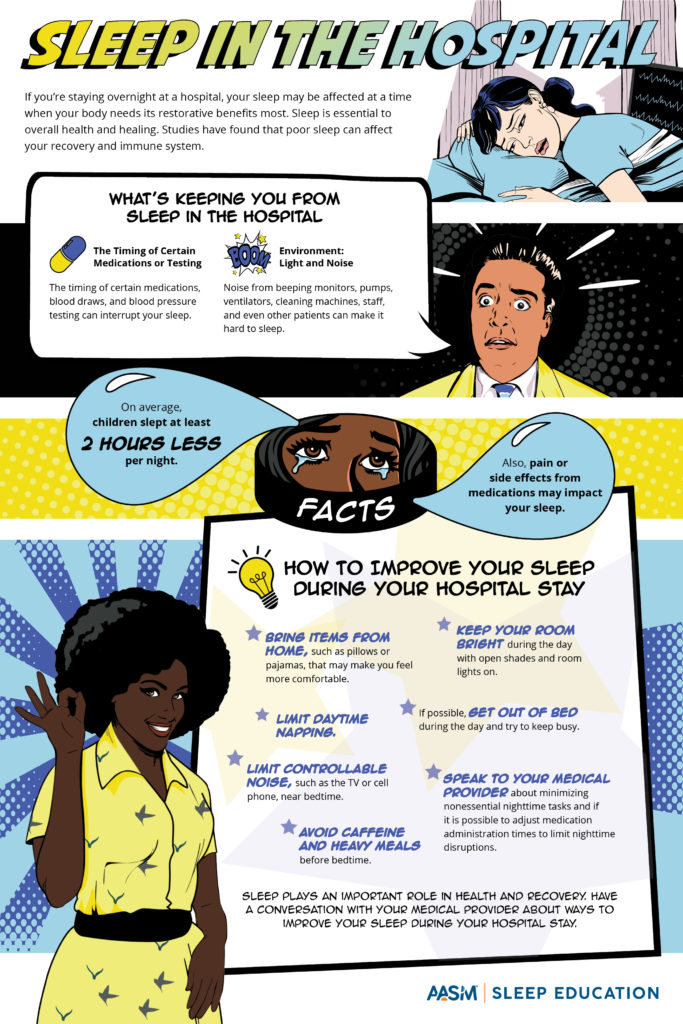If you’re staying overnight at a hospital, your sleep may be negatively impacted at a time when your body needs its restorative benefits most. Sleep is essential to overall health and healing. Studies have found that poor sleep can impact your recovery, sense of wellness, and immune system.
There are many reasons you may find it difficult to sleep well in the hospital, but there are ways to improve your rest.
A wake-up call: What’s keeping you from sleep in the hospital
There are many factors that make it difficult to get quality sleep while in a hospital.
Hospital routines may play a role. The timing of certain medications, blood draws, and blood pressure testing can interrupt your sleep. These may be unavoidable causes of nighttime awakenings.
Other factors, such as light and noise, are part of the hospital environment. Noise from beeping monitors, pumps, ventilators, cleaning machines, staff, and even other patients can make it hard to sleep.
A 2021 study examined sleep in hospitalized children minute-by-minute to find that light and noise led to frequent nighttime awakenings. Children in this study experienced a large sleep deficit. On average, they slept at least two hours less per night than they slept at home before hospitalization.
Other factors that may negatively impact the appropriate quality and quantity of nighttime sleep can include pain, side effects from medications, and daytime napping.
How to improve your sleep during your hospital stay
It may seem like many of the factors keeping you awake in the hospital are out of your control. But there are ways to improve your sleep during your hospital stay, such as:
- Bring items from home, such as pillows or pajamas, that may make you feel more comfortable.
- Keep your room bright during the day with open shades and room lights on.
- Limit daytime napping.
- If possible, get out of bed during the day and try to keep busy.
- Limit controllable noise, such as the TV or cell phone, near bedtime.
- Avoid caffeine and heavy meals before bedtime.
- Speak to your medical provider about minimizing nonessential nighttime tasks and if it is possible to adjust medication administration times to limit nighttime disruptions.
A recent study introduced several sleep hygiene interventions to a group of hospitalized patients. They provided an eye mask, earplugs, and non-caffeinated tea to patients. Health care providers were instructed to ask if patients wanted window shades closed or lights turned off. Relaxing music was played at bedtime. Finally, signs promoting the importance of quietness at night were placed around the unit. Researchers found that the patients’ self-reported sleep improved after these interventions.
Sleep plays an important role in health and recovery. Have a conversation with your medical provider about ways to improve your sleep during your hospital stay.

Medical review by Anne Marie Morse, DO
Related:
Authored by:
Kate Robards





